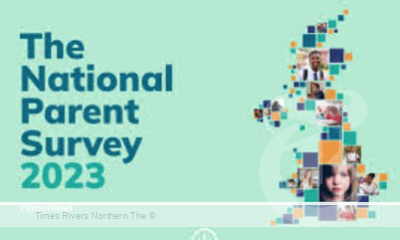COVID Casts a Long Shadow
The COVID-19 pandemic has undeniably left a profound and lasting impact on societies worldwide, casting a long shadow that continues to influence our daily lives, economies, and collective psyche. As we navigate the complex challenges and uncertainties brought about by the pandemic, its effects reverberate across multiple facets of our existence, shaping our present realities and shaping the trajectory of our future.
Healthcare Crisis
First and foremost, COVID-19 has exposed vulnerabilities within healthcare systems globally, testing their resilience and capacity to respond to public health emergencies. The overwhelming influx of patients, shortages of medical supplies and personnel, and the strain on healthcare infrastructure have underscored the need for robust preparedness and proactive measures to address future health crises effectively.
Advertisements

Economic Disruption
The pandemic has unleashed unprecedented economic disruption, triggering widespread job losses, business closures, and financial instability. Supply chain disruptions, reduced consumer spending, and fluctuations in global markets have exacerbated economic inequalities and pushed millions into poverty, highlighting the urgent need for comprehensive recovery strategies and support mechanisms for vulnerable populations.
Social Impacts
Socially, COVID-19 has brought about profound shifts in how we interact, communicate, and connect with one another. Physical distancing measures, lockdowns, and travel restrictions have reshaped social norms and behaviors, leading to feelings of isolation, loneliness, and mental health challenges. The pandemic has also laid bare existing social inequities, disproportionately affecting marginalised communities and exacerbating underlying societal divisions.

The COVID-19 pandemic has undeniably left a profound and lasting impact on societies worldwide, casting a long shadow that continues to influence our daily lives, economies, and collective psyche.
Educational Transformation
The education sector has undergone rapid transformation in response to the pandemic, with widespread school closures and the adoption of remote learning modalities. While technology has enabled continuity of learning, the digital divide has widened, exacerbating disparities in access to quality education and exacerbating existing educational inequalities.
Environmental Repercussions
Despite temporary reductions in pollution levels during lockdowns, the pandemic has underscored the interconnectedness of human health and the environment. Zoonotic diseases like COVID-19 highlight the risks associated with habitat destruction, wildlife trade, and unsustainable land-use practices, emphasising the need for a more holistic approach to environmental stewardship and biodiversity conservation.
Resilience and Adaptation
Amidst the challenges posed by COVID-19, stories of resilience, innovation, and community solidarity have emerged, demonstrating humanity’s capacity to adapt and persevere in the face of adversity. From frontline healthcare workers risking their lives to save others to grassroots initiatives providing essential support to vulnerable populations, the pandemic has sparked acts of compassion, empathy, and collective action.
As we continue to grapple with the far-reaching effects of COVID-19, it is imperative that we draw upon the lessons learned from this crisis to forge a more equitable, sustainable, and resilient future. By prioritising investments in public health infrastructure, fostering social cohesion, promoting economic recovery strategies that prioritise inclusivity and sustainability, and addressing systemic inequities, we can emerge from the shadow of COVID-19 stronger, more united, and better prepared to confront the challenges of tomorrow.
For more health news, click here.





 Tweed Shire News2 years ago
Tweed Shire News2 years ago
 Motoring News1 year ago
Motoring News1 year ago
 COVID-19 Northern Rivers News3 years ago
COVID-19 Northern Rivers News3 years ago
 COVID-19 Northern Rivers News3 years ago
COVID-19 Northern Rivers News3 years ago
 Northern Rivers Local News3 years ago
Northern Rivers Local News3 years ago
 Health News3 years ago
Health News3 years ago
 COVID-19 Northern Rivers News3 years ago
COVID-19 Northern Rivers News3 years ago
 NSW Breaking News3 years ago
NSW Breaking News3 years ago































